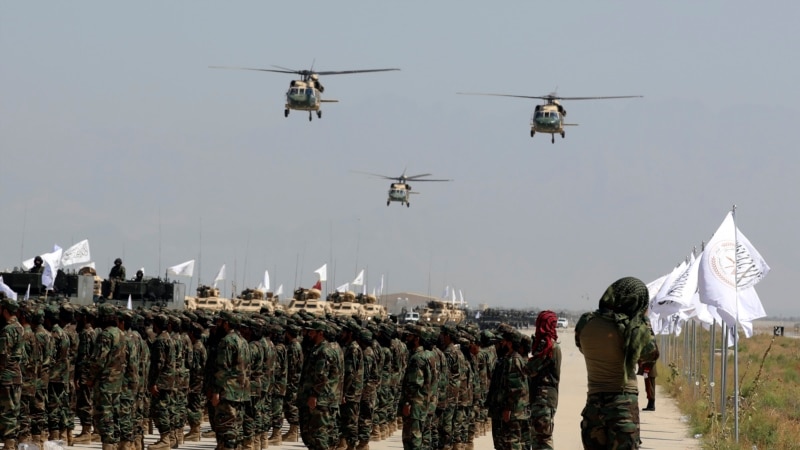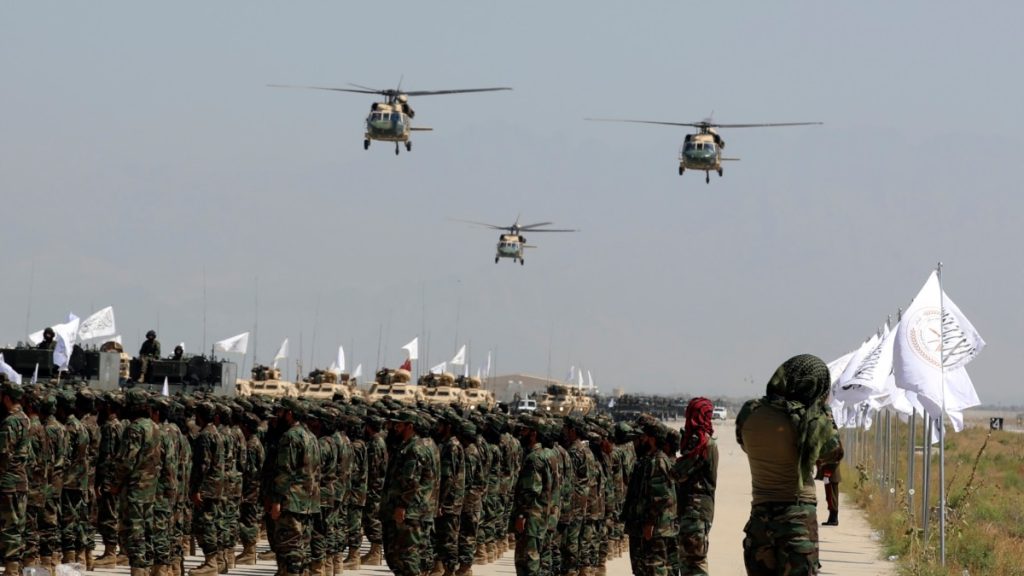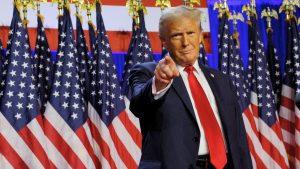
President-elect Donald Trump says that future financial assistance to Afghanistan will be contingent upon the return of U.S. military equipment by the Taliban leaders currently in power.
Trump’s remarks at a Sunday rally in Washington on the eve of his January 20 inauguration have heightened uncertainty regarding his administration’s stance on the crisis-hit South Asian nation.
“They [Biden administration] gave billions of billions of dollars to the Taliban. They gave our military equipment, a big chunk of it, to the enemy,” Trump said. He referred to the tumultuous and hasty withdrawal of U.S. troops from Afghanistan in August 2021, ordered by President Joe Biden.
“If we’re going to pay billions of dollars a year, tell them we’re not going to give them the money unless they give back our military equipment. … So, we will give them a couple of bucks; we want the military equipment back,” Trump stated without elaborating.
A report issued by the U.S. Department of Defense in 2022 revealed that approximately $7 billion worth of military equipment was left behind in Afghanistan following the completion of the military withdrawal. The equipment in question, which included aircraft, air-to-ground munitions, military vehicles, weapons, communications equipment, and other materials, was subsequently seized by the Taliban.
The de facto Afghan rulers have since repeatedly displayed the U.S. military gear in their so-called victory day celebrations over the past three years.
The foreign troop exit stemmed from the February 2020 Doha Agreement that the first Trump administration negotiated with the then-insurgent Taliban. Biden completed and defended the military withdrawal, saying the choice he had was either to follow through on that agreement or be prepared to go back to fighting the Taliban.
Following the withdrawal, the Biden administration largely isolated the Taliban and imposed new sanctions on the group. Washington, however, has continued to be the largest donor to Afghanistan, a country that the United Nations says is suffering through one of the severest humanitarian crises in the world. U.S. officials have also engaged in diplomatic efforts with the Taliban to negotiate the release of certain U.S. detainees and assisted in relocating Afghan allies who had helped American forces.
US gives cash for humanitarian aid
The billions of dollars that Trump repeatedly has referred to are likely the cash shipments being channeled through the U.N. and non-governmental organizations to support humanitarian programs in Afghanistan. Washington remains the primary donor and has spent approximately $3 billion in humanitarian aid since the U.S. withdrawal.
Thomas Ruttig from the independent Afghanistan Analysts Network warned of challenges for the Taliban under the Trump administration. He noted that some members of Congress and incoming administration officials took part in the 20-year U.S. mission in Afghanistan and have been highly critical of the Taliban.
Despite this, he stated that countering regional terrorism is a significant concern in Washington, and it could potentially encourage the Trump administration to seek cooperation with the Taliban to combat terrorist organizations, including the Afghanistan-based affiliate of the Islamic State terrorist organization known as IS-Khorasan.
Ruttig said that Tim Burchett, Republican vice chair of the U.S. Congress’s Foreign Affairs Committee, recently introduced a bill, the “No Tax Dollars for Terrorists Act,” to ensure that U.S. tax money does not end up in the hands of the Taliban.
The U.N. Assistance Mission in Afghanistan denies that cash shipments for humanitarian programs are financing the Taliban. The mission says the current setup – in which cash is physically brought to Afghanistan and placed in designated U.N. accounts in a private bank – is in place because of a ban on international banking transfers and ongoing liquidity issues.
“All these funds are then distributed directly to the United Nations entities, as well as to a small number of approved and vetted humanitarian partners in Afghanistan,” according to the mission.
Taliban leaders have rejected Trump’s assertions that their government received U.S. financial aid, stating that they do not expect or seek any assistance from Washington. “Instead, it (U.S.) has confiscated and frozen billions of dollars that rightfully belong to the people of Afghanistan,” said a Taliban statement in response to Trump’s remarks earlier this month.
Ruttig warns that punitive measures and sanctions to pressure the Taliban into submission might also provoke them to stop cooperation with international stakeholders.
“Today, the US-Taliban Doha Agreement is still considered valid and obliges the Taliban to restrict ISKP and other groups from using their shelter in Afghanistan to commit terrorist acts in the West. This could be jeopardized by new quasi-sanctions on them,” he said in written comments.
Taliban hopes for better relations
Masuda Sultan, an Afghan American advocate for women’s rights, is doubtful the new Trump administration will substantially change its stance on the Taliban. Instead, she expects the U.S. will cut aid contributions to U.N.-funded programs like the World Food Program that have supported the country’s most vulnerable.
At the same time, Taliban leaders appear publicly optimistic about a favorable shift in U.S. policy under the Trump presidency, attributing this to their Doha pact with his previous Trump administration. Kabul promptly welcomed Trump’s election victory just one day after he was declared the winner of the United States presidential vote.
The Taliban foreign ministry issued a formal statement expressing its hope that “the incoming U.S. administration will adopt a pragmatic approach to ensure tangible advancement in bilateral relations, allowing both nations to open a new chapter of relations grounded in mutual engagement.”
Earlier this month, Taliban Deputy Foreign Minister Sher Mohammad Abbas Stanikzai commended Trump as a “decisive” and “courageous” leader. Stanikzai suggested that Trump reconsider Biden’s policy and adopt a new approach.
“We want to build good relations with the international community and the Western countries,” Stanikzai said in televised remarks in local language. “An enemy doesn’t remain an enemy forever, and a friend doesn’t remain a friend forever either,” he added.





